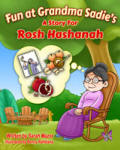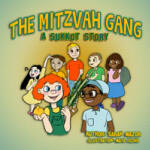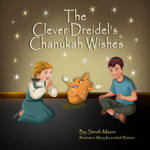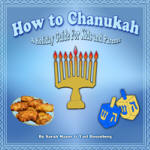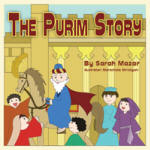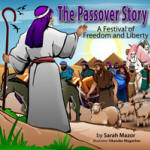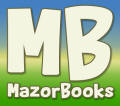 |

Today is:
|
 |
 |
|
|
rosh hashana, yom kippur, sukkot, simchat torah, shmini atzeret,chanukah,hanukkah,purim,pesach,passover,shavuot, lag ba'omer,tisha b'av |
|
|
|
Rosh Hashanah
Customs & Traditions
By: Rivka C. Berman, Contributor
Click Here for More Holiday Articles

Rosh Hashanah Customs
Rosh Hashanah’s mix of meanings, celebrating God’s coronation and worldwide Judgment Day, jumble
together for a sweet/serious holiday whose customs mix the joy of God’s
'Ruler-ship' and the seriousness of passing muster and being inscribed for a
good year.
Clothing
Customary attitudes toward Rosh Hashanah clothing exemplify how the
contrasting themes play out. On the one hand, special festive clothing is worn
because Rosh Hashanah is a holy day, Day of God’s coronation. Jewish legal
writers went so far as to require men to buy new holiday clothing or jewelry for
their wives. (Now women have their own credit cards and salaries to match. No
need to wait for husbands to loosen the purse strings, thank you.)
Yet some will avoid red clothes, a color linked to severity and blood, in favor
of white attire, a hue of purity and the shade of a mother’s milk, sign of love
and mercy. White can also symbolize confidence that a favorable judgement will
be meted out. The power of positive thinking only extends so far, and some
Sephardic Jews will not wear brand new clothing on Rosh Hashanah lest they
appear overly certain of their righteousness before the Judge.
New Years Cards
Hallmark, the ubiquitous card printer and kitsch maker, must love the
Jewish custom of sending New Year’s greetings by post. Many Jews draw up long
lists of loved ones, friends, would-be friends, and wished-for acquaintances and
send New Year’s greetings to them.
Apparently this custom was born out of a serious intent. By offering the
greeting “May you be sealed for a good year” or “May you be inscribed in the
Book of Life,” Jews would subtly remind each other of the Day of Judgment ahead.
Mikvah
A perennial symbol of rebirth the mikvah is a
gathering of waters that Jewish have immersed in the womb-like waters to emerge
with a renewed sense of self. Taking a dip in the mikvah before Rosh Hashanah is
a step in greeting the New Year with a fresh slate.
Visiting the Cemetery
Modern mobility brought a decline in the custom to visit a loved one’s gravesite
before the New Year. Psalms and personal prayers said at a cemetery are not
directed to the ancestor. Rather the prayers are said with the belief that God
will listen closely to the prayers because of the departed one’s goodness. Some
synagogues host public memorial services at local cemeteries to carry on this
tradition.
Hattarat Nedarim
An unfulfilled personal vow starts off the New Year in the red. To avoid this a
brief ceremony called Hattarat Nedarim, vow annulment, is held. This ceremony
only works to end an obligation to vows that were made to oneself and forgotten
about or inadvertently uttered. All other vows remain intact.
How Hattarat Nedarim works:
After Rosh Hashanah eve's morning prayers, an ad hoc Jewish court is formed (by
gathering three adults). The person seeking vow annulment recites a brief
admission, found in Rosh Hashanah prayer books, that he or she wishes to be
released from the vows that may have been made and not fulfilled over the past
year.
The “court” states that the request is granted saying: “Now there is no pledge
or swear or promise only forgiveness and repentance. Just as we have set you
free in this court you should be absolved in the heavenly court. May the
negative forces born from your lapsed promises turn into blessing because God
loves you.”
Greetings
Shana Tova – Good Year
L'Shana Tova Tea-ka-tayv v’teekatem– May you be inscribed and sealed for a good
year
This wish is based on a passage in the Talmud.
“Rabbi Kruspedai said in the name of Rabbi Johanon: Three books are opened [in
heaven] on the New Year. One for the thoroughly wicked, one for the thoroughly
righteous, and one for the intermediate. The thoroughly righteous are inscribed
in the Book of Life, the thoroughly wicked are inscribed in the Book of Death,
and the fate of the intermediate is suspended from the New Year until the Day of
Atonement. If they deserve well, they are inscribed in the Book of Life. If the
do not deserve well, they are inscribed in the Book of Death…. Repentance,
prayer, and charity can avert the severe decree.” (Rosh Hashanah 16b)
Symbolic Foods
Though information on symbolic foods certainly
belongs under "Rosh Hashanah Customs," it is a big subject, so rich in ritual
practices and traditions, that we decided to devote to it it's own page on
MazorGuide to Rosh Hashanah. Click here for more information.

Mazor Guide to Rosh Hashanah brings you much more about the holiday, its
meaning and its traditions... See the links below.
.jpg)
Buy Kosher Wines for Rosh Hashanah!!
Articles
|
|






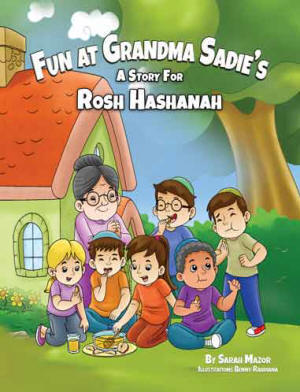

.jpg)
